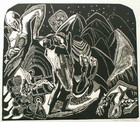Francis of Assisi: The Troubadour of God
Francis of Assisi is the most likeable of saints. There is something authentically human and disarmingly eccentric about the clothier’s son from Umbria who turned Christendom upside down that has survived the sanctimonious embellishments of his church biographers. How can you not feel drawn to this man of modest stature and huge heart, who left wine and honey out so bees might survive the winter; who preached in church in his underwear, as an act of humility; who told a fellow brother in need of directions to twirl around and head off the way he was facing when he stopped spinning? Francis can seem maddeningly medieval, adding ashes to his food just to ruin the taste; yet, he can be refreshingly modern and “green” in his love for all of God’s good creation--beginning with earth worms.
St. Francis was the consummate performance artist, a troubadour for God who sang in French like a traveling minstrel of the Middle Ages to express his joy. We would do this gentle man of God a disservice to remember him simply for his delightful antics or his sermon to the birds. Francis fervently embraced the “hard teachings” of the Gospels, going further than almost anyone in the Western world in giving up all he had to follow Jesus and wed Lady Poverty. As the “Mirror of Christ,” his influence down the centuries has been enormous. Notable “secular” Franciscans include Louis IX of France, Dante, Giotto, Joan of Arc, Christopher Columbus, Thomas More, Michelangelo, and Louis Pasteur. Argentine Cardinal Jorge Mario Bergoglio assumed his name when he became pope in 2013.
Saint Francis ranks just below Christ, the Virgin Mary, and the angels as a favorite subject in Western sacred art. The frescoes Giotto painted of the life of St. Francis in Assisi and Florence are milestones in cultural history, and the saint's likeness appears in works by Cimabue, Giovanni Bellini, Caravaggio, El Greco, Zurbaran, Rubens and other Great Masters. The images of St. Francis on view here are the creations of a diverse group of international artists and artisans: a Haitian metalworker, a "String Literature” woodblock illustrator from Brazil, saint-makers of the American Southwest, and East European ex libris bookplate artists. You can also see vintage prints of a watercolor cycle on the life of St. Francis by the Chilean Benedictine monk and artist, Pedro Subercaseux Errazuriz, and lithographs from a Franciscan series by French Graphic Artist J. Frederic Loisel.
The accompanying texts present key moments in the life of Francis of Assisi, as recorded in Major and Minor Life of St. Francis by his 13th century hagiographer, St. Bonaventure, and in The Little Flowers of St. Francis from the end of the 14th century, attributed to the Franciscan, Ugolino Brunforte . These passages alternate with excerpts from a biography of St. Francis by early 20th century British Essayist, G.K. Chesterton, whose idiosyncratic style is well-suited to his subject. The meditation ends with St. Francis' own poem, Canticle of the Sun, believed to be the first work of literature in the Italian language.
One day as [Francis] was riding on the plain below Assisi, he met a leper. The encounter was completely without warning and Francis felt sick at the sight of him. Then he remembered his resolve to be perfect and the need to overcome himself first, if he wanted to be a knight of Christ. He immediately dismounted and ran up to kiss the poor man. The leper stretched out his hand, hoping to get something, and Francis put some money in it and kissed it. Then he mounted his horse and looked this way and that about the plain with a clear view in all directions, but there was no sight of the leper. (St. Bonaventure, Major Life)
He devoured fasting as a man devours food. He plunged after poverty as men have dug madly for gold. And it is precisely the positive and passionate quality of this part of his personality that is a challenge to the modern mind in the whole problem of the pursuit of pleasure. (G.K. Chesterton, Saint Francis of Assisi)
[Francis] left the town one day to meditate out of doors and, as he was passing by the church of San Damiano, which was threatening to collapse with age, he was inspired by the Holy Spirit to go in and pray. He knelt there before an image of our Lord on his Cross and he felt great pleasure and consolation in his prayers, so that his eyes were full of tears as he gazed at the Cross. Then, with his own ears, he heard a miraculous voice coming to him from the Cross, saying three times, “Francis, go and repair my house. You see, it is all falling down.” At first he was terrified at the divine command expressed in these extraordinary words; but then he was filled with joy and wonder, and he stood up immediately, prepared to put his whole heart into obeying the command and repairing the material building. However, the message really referred to the universal Church which Christ bought with the price of his Precious Blood, as the Holy Spirit afterwards made him realize, and he himself explained to his close companions. (St.Bonaventure, Minor Life)
It is commonly in a somewhat cynical sense that men have said, “Blessed is he that expecteth nothing, for he shall not be disappointed.” It was in a wholly happy and enthusiastic sense that St. Francis said, “Blessed is he who expecteth nothing, for he shall enjoy everything.” It was by this deliberate idea of starting from zero, from the dark nothingness of his own deserts, that he did come to enjoy even earthly things as few people have enjoyed them.” (G.K. Chesterton, Saint Francis of Assisi)
[His father] arranged to have Francis brought before the bishop of the diocese, where he should renounce all his claims and return everything he had. In his genuine love of poverty, Francis was more than ready to comply and he willingly appeared before the bishop. There he made no delay--without hesitation, without hearing or saying a word--he immediately took off his clothes and gave them back to his father. Then it was discovered that he wore a hair-shirt under his fine clothes next to his skin. He even took off his trousers in his fervor and enthusiasm and stood there naked before them all. Then he said to his father, “Until now I have called you my father, but from now on I can say without reserve, ‘Our Father who art in heaven.’ He is all my wealth and I place all confidence in him.” When the bishop heard this, he was amazed at his passionate fervor. He jumped to his feet and took Francis into his embrace, covering him with the cloak he was wearing. (St.Bonaventure, Major Life)
To talk about the art of living has come to sound rather artificial than artistic. But St. Francis did in a definite sense make the very act of living an art, though it was an unpremeditated art…From the moment when he rent his robes and flung them at his father’s feet to the moment when he stretched himself in death on the bare ground in the pattern of the cross, his life was made up of these unconscious attitudes and unhesitating gestures. (G.K. Chesterton, Saint Francis of Assisi)
Unmarried women were inspired to profess a life or perpetual virginity, among whom St. Clare was especially dear to God. She was the first flower in Francis’ garden, and she shone like a radiant star, fragrant as a flower blossoming white and pure in springtime. She was his daughter in Christ and foundress of the Poor Clares. Now she has been glorified in heaven and on earth the church pays her the honor which is her due. (St.Bonaventure, Major Life)
[Clare] did most truly, in the modern jargon, live her own life, the life that she herself wanted to lead, as distinct from the life into which parental commands and conventional arrangements would have forced her. She became the foundress of a great feminine movement which still profoundly affects the world; and her place is with the powerful women of history. (G.K. Chesterton, Saint Francis of Assisi)
As Francis was on his way with his companions [to Rome], determined to carry out his plan and gain an audience with the Supreme Pontiff, Innocent III, Christ, the power of God, Christ the wisdom of God, in his merciful condescension, came to meet him on his way. By means of a vision he instructed his Vicar on earth to give a peaceful hearing to this poor beggarman and grant his petition with good grace. In his vision the pope saw the Lateran basilica threatening to collapse and being held up by a poor, wretched-looking individual of slight stature who put his back to it, to prevent it from falling. When Francis appeared before him, the learned pontiff was struck by the purity of his heart and his disregard for the world, and he was deeply impressed by his love of poverty and his determination to be perfect, as well as his zeal for souls and the burning fervor of his will. “Beyond doubt,” he exclaimed, “this is the man who will uphold Christ’s Church by his work and teaching.” (St.Bonaventure, Minor Life)
St. Francis is the mirror of Christ rather as the moon is the mirror of the sun. The moon is much smaller than the sun, but it is also much nearer to us; and being less vivid it is more visible. Exactly in the same sense St. Francis is nearer to us, and being a mere man like ourselves is in that sense more imaginable. (G.K. Chesterton, Saint Francis of Assisi)
Francis had first convinced himself of the truth of what he preached to others by practicing it in his own life and so he proclaimed the truth confidently, without fear of reproof. He denounced evil wherever he found it, and made no effort to palliate it; from him a life of sin met with outspoken rebuke, not support. He spoke with equal candor to great and small and he was just as happy addressing a handful of listeners as a large gathering. Men and women of every age flocked to see and hear this new preacher who had been given to the world by God. (St.Bonaventure, Major Life)
St. Francis, thinking over the prompt obedience of Brother Rufino…and the very difficult command he had given him, began to reproach himself very severely, saying: “How can you…order Brother Rufino, who is one of the noblest citizens of Assisi, to go naked and preach to the people like a madman? By God, I am going to see to it that you yourself experience what you order others to do!”…And having said that, in the fervor of the Holy Spirit he too immediately took off his habit and went to Assisi naked…and when the people of Assisi saw him naked, too, they laughed at him as at a lunatic, thinking that both he and Brother Rufino had gone mad from too much penance…Then St. Francis went up naked into the pulpit and began to preach so marvelously about contempt for the world, holy penance, holy voluntary poverty, the desire for the Kingdom of Heaven, and about the nakedness and humiliations and most holy Passion of Our Lord Jesus Christ Crucified that the whole crowd of men and women who had gathered there…cried out aloud to God for mercy, so that nearly all of them were converted to a new state of mind. (The Little Flowers of St. Francis)
St. Francis was a man who did not want to see the wood for the trees. He wanted to see each tree as a separate and almost sacred thing, being a child of God and therefore a brother or sister of man. (G.K. Chesterton, Saint Francis of Assisi)
St. Francis was journeying about the valley of Spoleto preaching, when he came to a place near Bevagna in which a huge flock of birds of various kinds had gathered. The moment he saw them, the Spirit of God came upon him and he hurried to them. He greeted them cheerfully and told them to be quiet and listen to the word of God attentively. He spoke to them at length about the benefits God bestows on his creatures and the praise which they owe him. The birds showed their pleasure in a wonderful manner; they stretched out their necks and flapped their wings, opening their beaks and looking at him closely. They seemed to be trying to feel the marvelous power of his words. (St.Bonaventure, Minor Life)
At the time when St. Francis was staying in the town of Gubbio, something wonderful and worthy of lasting fame happened. For there appeared in the territory of that city a fearfully large and fierce wolf which was so rabid with hunger that it devoured not only animals but human beings… [St. Francis] had pity on the people and decided to go out to meet the wolf...The fierce wolf came running with its mouth open…The Saint made the Sign of the Cross toward it…Then, calling to it, St. Francis said: “Come to me, Brother Wolf. In the name of Christ, I order you not to hurt me or anyone.” It is marvelous to relate that as soon as he had made the Sign of the Cross, the wolf closed its terrible jaws and stopped running, and as soon as he gave it that order, it lowered its head and lay down at the Saint’s feet, as though it had become a lamb. (The Little Flowers of St. Francis.)
He had the air not only of apologizing to the cat or to the birds, but of apologizing to a chair for sitting on it or to a table for sitting down at it. Any one who had followed him through life merely to laugh at him, as a sort of lovable lunatic, might easily have had the impression as of a lunatic who bowed to every post or took off his hat to every tree. This was all a part of his instinct for imaginative gesture. He taught the world a large part of its lesson by a sort of divine dumb alphabet. (G.K. Chesterton, Saint Francis of Assisi)
As St. Francis was greatly weakened in body, partly by his severe abstinence and partly by the attacks of the devils, and he wished to comfort his body with the spiritual food of the soul, he began to think of the limitless glory and joy of those who are blessed with eternal life…And while he was meditating on that thought, all of a sudden an angel appeared to him in a very bright light, holding a viol in his left hand and a bow in his right hand. And as St. Francis gazed in amazement at the angel, the latter drew the bow once upwards across the viol. And immediately such a beautiful melody invaded St. Francis’ soul and suspended all his bodily senses that…he wondered whether, if the angel had drawn the bow down again, his soul would not have left his body owing to the unbearable loveliness of the music. (The Little Flowers of St. Francis)
One morning about the feast of the Exaltation of the Holy Cross, as he was praying on the mountainside, Francis saw a Seraph with six fiery wings coming down from the highest point in heaven. The vision descended swiftly and came to rest in mid-air quite near him: then he saw that the Seraph was nailed to a cross although he had wings…As the vision disappeared, after they had conversed mysteriously in great intimacy, it left his heart ablaze with seraphic eagerness and marked his body with the visible likeness of the Crucified…There and then the marks of the nails began to appear in his hands and feet…His right side was marked with a livid scar which often bled, and it looked like it had been pierced with a lance. (St.Bonaventure, Minor Life)
Through all his plunging and restless days ran the refrain: I have not suffered enough; I am not worthy even of the shadow of the crown of thorns. He wandered about the valleys of the world looking for the hill that has the outline of a skull. (G.K. Chesterton, Saint Francis of Assisi)
In his last serious illness, which was destined to put an end to all his suffering, he had himself laid naked on the bare earth…As he lay there in the dust on the ground, like an athlete stripped for the arena, he covered the wound in his right side with his left hand, to prevent it being seen, and fixed his clear gaze on heaven. He was lost in the contemplation of its glory and he praised God for enabling him to go to him freely, stripped of everything in this world. (St.Bonaventure, Minor Life)
It is certain that [Francis] held on [his] heroic or unnatural course from the moment when he went forth in his hair shirt into the winter woods to the moment when he desired even in his death agony to lie bare upon the bare ground, to prove that he had and that he was nothing. And we can say, with almost as deep a certainty, that the stars which passed above that gaunt and wasted corpse stark upon the rocky floor had for once, in all their shining cycles round the world of laboring humanity, looked down upon a happy man. (G.K. Chesterton, Saint Francis of Assisi)
Most high, all powerful, all good Lord!
All praise is Yours, all glory, all honor, and all blessing.
To You, alone, Most High, do they belong.
No mortal lips are worthy to pronounce Your name.
Be praised, my Lord, though all Your creatures,
especially through my lord Brother Sun,
who brings the day, and You give light through him.
And he is beautiful and radiant in all his splendor!
Of you, Most High, he bears the likeness.
Be praised, my Lord, through Sister Moon and the stars,
in the heavens You have made them bright, precious and beautiful.
Be praised my Lord, through Brothers Wind and Air,
and clouds and storms, and all the weather,
through which You give Your creatures sustenance.
Be praised, my Lord, through Sister Water.
She is very useful, and humble, and precious, and pure.
Be praised, my Lord, through Brother Fire,
through whom You brighten the night.
He is beautiful and cheerful, and powerful and strong.
Be praised, My Lord, through our sister Mother Earth,
who feeds us and rules us,
and produces various fruits with colored flowers and herbs.
Be praised, my Lord, through those who forgive for love of You,
through those who endure sickness and trial.
Happy those who endure in peace,
for by You, Most High, they will be crowned.
Be praised, my Lord, through our sister Bodily Death,
from whose embrace no living person can escape.
Woe to those who die in mortal sin!
Happy those she finds doing Your most holy will.
The second death can do no harm to them.
Praise and bless my Lord, and give thanks,
and serve Him with great Humility
(Saint Francis of Assisi, Canticle of the Sun)
Major and Minor Life of Saint Francis by St. Bonaventure, trans. Benen Fahy, O.F.M. (Franciscan Press, Quincy College, Illinois: 1991)
The Little Flowers of St. Francis, attributed to Ugolino Brunforte, trans. Raphael Brown. (Image Books, Garden City, New York: 1958)
Saint Francis of Assisi by G.K. Chesterton (Image Books, Doubleday, New York: 1990)
Saint Francois d'Assise, illustrations from watercolors by Pedro Subercaseaux Errazuriz (Marshall Jones Company, Boston: 1925)
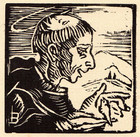
Jean Eugene Bersier
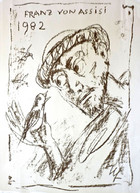
Hans Fronius
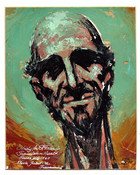
Frank Kelly Freas
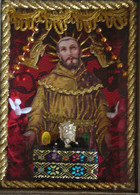
Johnny Salas
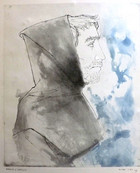
Michel Ciry
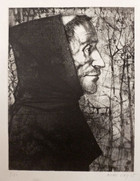
Michel Ciry
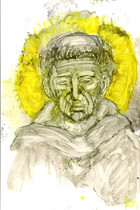
K.I.M. (After Cimabue)
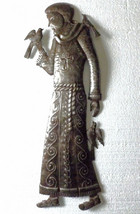
Nicolson Mathieu
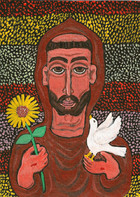
John Kohan
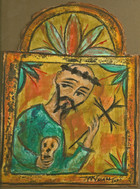
Michael Vargas
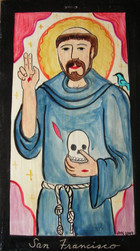
Ellen Santistevan
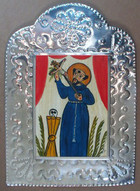
Marie Romero Cash
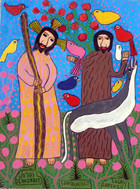
Lucas Lorenzo
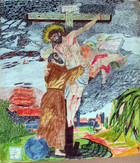
Rafael Gonzalez

Michael Vargas
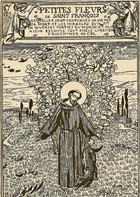
Maurice Denis
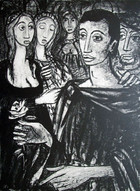
J. Frederic Loisel
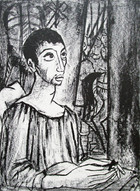
J. Frederic Loisel
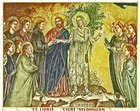
Sergey Kirnitskiy
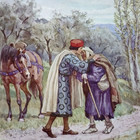
Pedro Subercaseaux Errazuriz
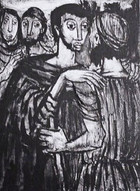
J. Frederic Loisel
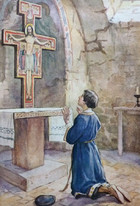
Pedro Subercaseaux Errazuriz
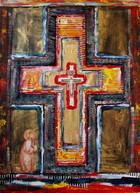
John Kohan
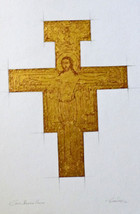
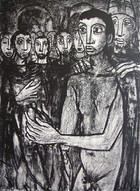
J. Frederic Loisel
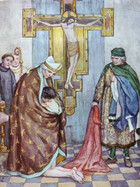
Pedro Subercaseaux Errazuriz
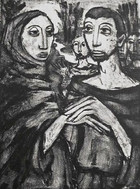
J. Frederic Loisel
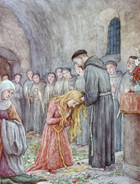
Pedro Subercaseaux Errazuriz
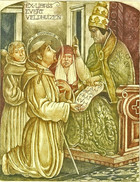
Sergey Kirnitskiy
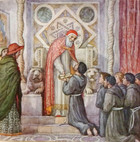
Pedro Subercaseaux Errazuriz
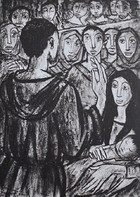
J. Frederic Loisel
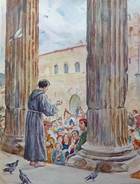
Pedro Subercaseaux Errazuriz
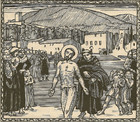
Maurice Denis
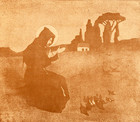
Etienne Moreau-Nelaton
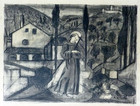
Anne-Marie de Courlon
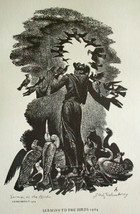
Fritz Eichenberg
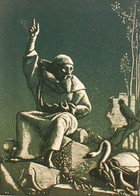
Allen Lewis
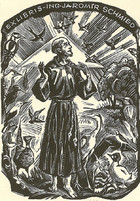
Emil Kotrba
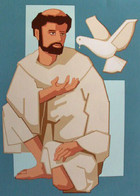
David da Costa
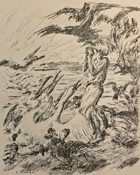
Emil Pottner
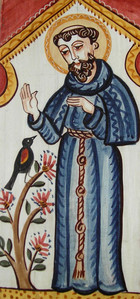
Mary Jo Madrid
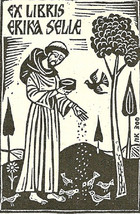
Pencho Koulekov
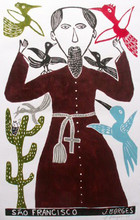
Jose Francisco Borges
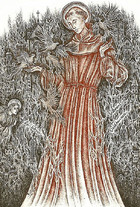
Natalija Cernetsova
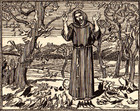
Maurice Denis
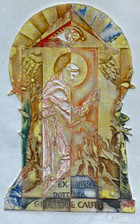
Antanas Kmieliauskas
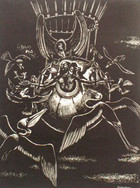
Fritz Eichenberg
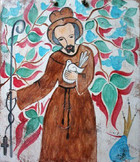
Fernando Bimonte
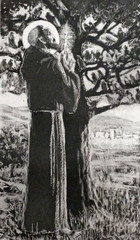
Raphael Drouart
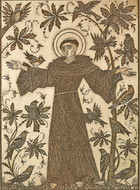
Nina Kazimova
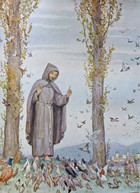
Pedro Subercaseaux Errazuriz
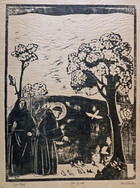
Ernst Zeuthen (After Giotto)
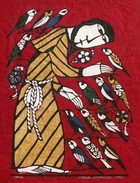
Sadao Watanabe
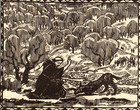
Maurice Denis
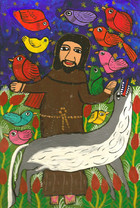
Lucas Lorenzo
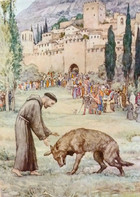
Pedro Subercaseaux Errazuriz
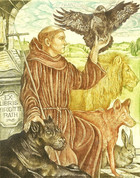
Sergey Kirnitskiy
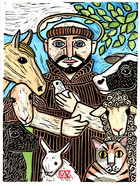
Joan Wiberg
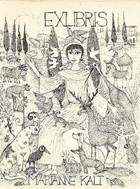
Unknown Ex Libris Artist
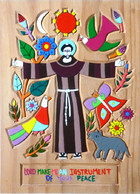
La Semilla de Dios Workshop
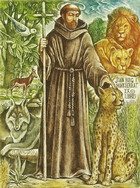
Sergey Kirnitskiy
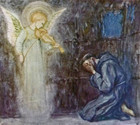
Pedro Subercaseaux Errazuriz
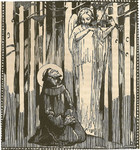
Maurice Denis
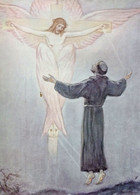
Pedro Subercaseaux Errazuriz
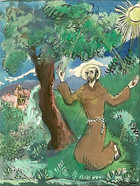
Hermine David
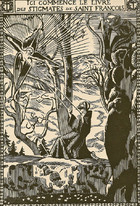
Maurice Denis
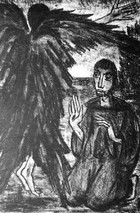
J. Frederic Loisel
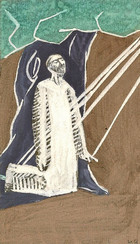
Henri Brochet
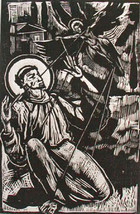
Otto Schubert

Maurice Denis
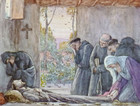
Pedro Subercaseaux Errazuriz
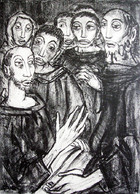
J. Frederic Loisel

J. Frederic Loisel
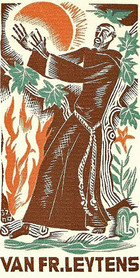
Unknown Belgian Artist
